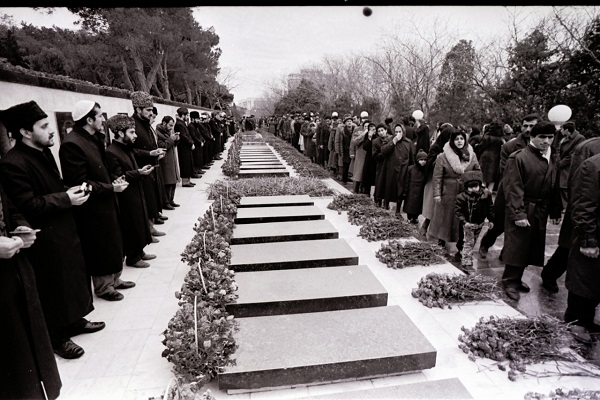LONDON - 20th January 2014 marks the 24th anniversary of the Black January tragedy, military invasion and indiscriminate killing of civilians in the city of Baku by the Soviet troops on 19-20 January 1990. In response to the rising national independence movement, the Soviet leadership ordered some 26000 troops equipped with heavy military equipment such as tanks, in an operation called "Strike" (Udar), to storm the city of Baku. The heavy-handed crackdown resulted in indiscriminate killing of some 137 civilians with more than 800 injured and many others went missing. The Soviet army also attacked the state TV building, cutting off the power supply in an attempt to prevent the dissemination of news to the international community.
The day the tragedy took place later came to be known as Black January or Black Saturday, widely commemorated in Azerbaijan and by Azerbaijani communities around the world. Every year, hundreds of thousands of Azerbaijanis visit the Martyrs' Lane, where the victims of Black January lay buried, to pay respects to the victims. 20th January is a national mourning day in Azerbaijan with nationwide commemorations taking place and the national flag flying at half-mast over the public buildings and diplomatic missions abroad. Though it was a tragic and sad day, the 20th January events are also considered a milestone on the road to Azerbaijan’s independence from the Soviet Union. It weakened the Soviet rule in Azerbaijan and led to the regaining of independence of Azerbaijan on 18 October 1991.
In its report dedicated to the Black January, Human Rights Watch notes: "Indeed, the violence used by the Soviet Army on the night of January 19–20 was so out of proportion to the resistance offered by Azerbaijanis as to constitute an exercise in collective punishment. ............the punishment inflicted on Baku by Soviet soldiers may have been intended as a warning to nationalists, not only in Azerbaijan, but in the other Republics of the Soviet Union.
The Wall Street Journal editorial of January 4, 1995 stressed that the then Soviet leader Gorbachev chose to use violence against "independence-seeking Azerbaijan."
As Azerbaijani community in the United Kingdom commemorate the victims of Black January, Ambassador of Azerbaijan to London Fakhraddin Gurbanov said on the occasion: «Today our nation pays tribute to those killed by the Soviet army in 1990. This is a very tragic and sad day for our people. It was a crime against humanity and a rare case where state used force on such a large scale against its own citizens. But it is also a time to reflect on the value and importance of the independence. Those killed on that day sacrificed their lives for the independence of Azerbaijan and it is our duty here in the United Kingdom as Azerbaijani community to always remember and pay our respects to them. My hope is that perpetrators of this crime against humanity will be brought to justice."



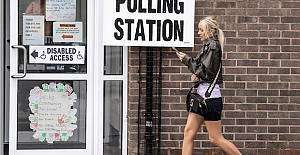 Advice for Enfield residents ahead of the General Election
Advice for Enfield residents ahead of the General Election Sunak promises tax cuts, economic stability, Conservative Party election manifesto
Sunak promises tax cuts, economic stability, Conservative Party election manifesto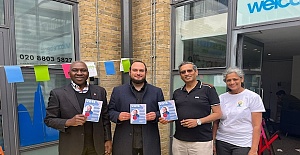 Ertan Karpazli, an independent MP candidate for the Enfield North constituency
Ertan Karpazli, an independent MP candidate for the Enfield North constituency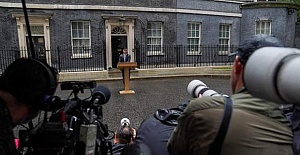 Rishi Sunak announces a general election in a statement outside Downing Street
Rishi Sunak announces a general election in a statement outside Downing Street Residents of Spanish island of Mallorca launch initiative to thank tourists amid protests over mass tourism
Residents of Spanish island of Mallorca launch initiative to thank tourists amid protests over mass tourism Srebrenica Remembered, Lessons for Justice and Peace! YEE London held a reflective event
Srebrenica Remembered, Lessons for Justice and Peace! YEE London held a reflective event British Premier Keir Starmer to reset UK-EU relations with high-profile meetings
British Premier Keir Starmer to reset UK-EU relations with high-profile meetings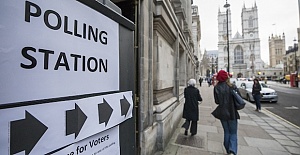 Voters head to polls for UK general election
Voters head to polls for UK general election The Swiss official will take charge of the match between Real Madrid and Atalanta in Warsaw
The Swiss official will take charge of the match between Real Madrid and Atalanta in Warsaw Applications are now open for Walking and Cycling Grants London until 9 September 2024
Applications are now open for Walking and Cycling Grants London until 9 September 2024  Two Circles also appointed as exclusive media sales agency for UEFA Women’s Champions League
Two Circles also appointed as exclusive media sales agency for UEFA Women’s Champions League  England manager Gareth Southgate has resigned two days after defeat by Spain
England manager Gareth Southgate has resigned two days after defeat by Spain Joyce and Snell's planning application gets stamp of approval
Joyce and Snell's planning application gets stamp of approval The amount of bounce back loans fully repaid is just %13
The amount of bounce back loans fully repaid is just %13 Petrol prices higher than they should be, says RAC
Petrol prices higher than they should be, says RAC UEFA and Mastercard renew UEFA Champions League partnership
UEFA and Mastercard renew UEFA Champions League partnership




